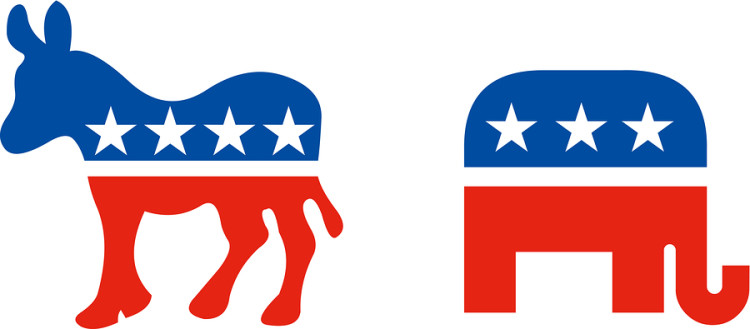Strong Economy Brings Out Strong Partisanship: Ramesh Ponnuru

published Oct 5, 2018, 5:00:17 AM, by Ramesh Ponnuru
(Bloomberg Opinion) —
There are two partisan temptations to avoid when thinking about a strong economy: One is to assume it’s all your party’s doing; the other is to pretend it isn’t strong. Both sides are currently having difficulty resisting these temptations.
A number of Democratic members of Congress have touted the work of Robert Shapiro, an economist who worked in the Bill Clinton administration. Shapiro claims that Americans in the middle of the income distribution have been falling behind under President Donald Trump. Inflation-adjusted median earnings have declined during Trump’s first 18 months, he says, after rising during President Barack Obama’s last 18.
The claim about falling wages under Trump is accurate under two conditions. Shapiro excludes the first quarter of 2017, an arguable but defensible move. And he uses wage data that are not seasonally adjusted, which seems peculiar, especially when comparing it to a different set of months under Obama. Use seasonally adjusted data, and use the personal consumption expenditure index to adjust for inflation, and the median wage has risen slightly under Trump. Hoover Institution fellow David Henderson points out that compensation trends look even better if you account for the growth of benefits and the changing age composition of the workforce.
The conservative Heritage Foundation, meanwhile, has published an article claiming that Trump has turned the economy around. Michael Busler, a professor of finance at Stockton University in New Jersey, notes that the economy never grew by 3 percent in any year of Obama’s presidency, that it was growing at a 3 percent rate early in Trump’s presidency, and that it has been growing at a 4 percent rate more recently. All three points are accurate. Busler also characterizes economic growth from 2009 through 2014 as subpar — a reasonable assessment, albeit one that depends on how quickly an economy can be expected to recover from a sharp recession induced by a financial crisis.
But Busler ignores some of Obama’s strong quarters: The average from the second quarter of 2014 through the second quarter of 2015 was higher than the average over the last year. It’s true that 2018 could end up as a better year than any single calendar year under Obama. It’s also true that the data do not show any major shift in trend from Obama’s administration to Trump’s.
Busler’s treatment of real median income follows the same pattern. He points out, accurately, that it fell during much of Obama’s presidency and is now rising. But Census figures suggest it was rising faster at the end of the Obama years than it did in Trump’s first year. The median wage numbers reviewed above suggest the same.
Shapiro would have been on solid ground if he had argued that Trump had inherited a growing economy and that wage growth for most workers has decelerated under him. (He could, indeed, have found evidence of that deceleration in a recent report from the White House’s own Council of Economic Advisers.) Busler could have contented himself with pointing out the signs of economic strength and arguing that Republican policies will strengthen future growth.
But there’s a political demand for claims that are stronger than the evidence will bear. And no matter how the economy is faring, supply will materialize to meet that demand.
Ramesh Ponnuru is a Bloomberg Opinion columnist. He is a senior editor at National Review, visiting fellow at the American Enterprise Institute and contributor to CBS News.
To contact the author of this story: Ramesh Ponnuru at rponnuru@bloomberg.net
For more columns from Bloomberg View, visit Bloomberg view
COPYRIGHT
© 2018 Bloomberg L.P



No Comment